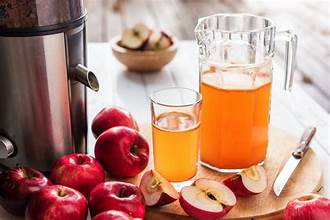Juicing is the simplest way to consume fruits in their most refreshing form. A glass of juice revitalizes both body and mind, packed with a plethora of vitamins and minerals essential for daily bodily functions. Not only does it hydrate the body, but specific fruit juices can also enhance the natural glow of your skin. With so many benefits, incorporating a daily glass of juice seems imperative. However, the shelf life of juice is limited, meaning prolonged consumption of freshly made juice might not offer the desired advantages. Therefore, understanding the optimal timing and techniques for juicing is crucial for reaping its full benefits.
When to Drink Juice?
Experts suggest that consuming juice on an empty stomach yields maximum benefits. This practice allows the digestive system to absorb all the nutrients efficiently. Alternatively, drinking juice during or immediately after breakfast provides benefits, albeit in lesser quantities. Another option is to wait at least two hours after a meal to drink juice or have a meal at least half an hour after drinking juice.
Drinking juice quickly in one go, like water, is not ideal. It’s advisable to sip juice slowly, allowing the body to absorb the nutrition effectively. Consuming large quantities of juice at once may lead to a spike in blood sugar levels.
Making Juice at Home
When making juice at home, prioritize methods that retain the nutritional value of the fruits. Since fruits contain natural sugars, refrain from adding extra sugar. Although it might enhance the taste, it diminishes the health benefits. Moreover, avoid straining the juice excessively to retain essential fibers.
How to Store Juice?
To preserve freshly squeezed juice for a short period, store it in an airtight glass container. This method slows down the oxidation process, ensuring the juice retains its flavor and color. However, it’s advisable not to store juice for more than 24 hours, even if refrigerated.




